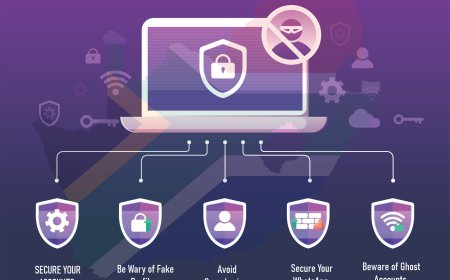Strengthening Zimbabwe's Cybersecurity Framework: Safeguarding Digital Frontiers
In an increasingly interconnected world, the importance of cybersecurity cannot be overstated. Zimbabwe, like many other nations, faces numerous cyber threats that can compromise the security and privacy of individuals, businesses, and government entities. To address these challenges, the Zimbabwean government has taken steps to establish a robust cybersecurity framework. This article aims to explore the current state of cybersecurity in Zimbabwe, the challenges faced, and the measures being taken to enhance cyber resilience.

Understanding the Current Cyber Threat Landscape:
Zimbabwe, like other countries, faces a wide range of cyber threats, including phishing attacks, malware infections, data breaches, and social engineering scams. These threats not only target individuals but also pose a significant risk to critical infrastructure, government systems, and financial institutions. The rise of digital technologies and the increasing reliance on the internet have made the country more vulnerable to cyberattacks.
The Zimbabwean Cybersecurity Framework:
The government of Zimbabwe, through the Ministry of Information Communication Technology, Postal and Courier Services, has recognized the need to strengthen the country's cybersecurity defenses. As a proactive measure, the government has designated November as the Cybersecurity Awareness Month, aiming to educate and raise awareness among the public about the importance of cybersecurity.
Key Components of the Cybersecurity Framework:
1. Legislation and Policy: The government has enacted the Cyber Crime and Cyber Security Bill, which seeks to address various cyber offenses and provide a legal framework for combating cybercrime. Additionally, the National Cybersecurity Policy provides guidelines and best practices for securing critical infrastructure and protecting sensitive information.
2. Capacity Building: To enhance cybersecurity capabilities, the government is investing in training programs and workshops to equip individuals, businesses, and government entities with the necessary skills to identify and mitigate cyber threats. Collaboration with international partners and organizations is also being pursued to leverage expertise and knowledge sharing.
3. Public-Private Partnerships: Recognizing the need for a collaborative approach, the government is actively engaging with private sector stakeholders, including internet service providers, telecommunications companies, and financial institutions. These partnerships aim to foster information sharing, develop joint strategies, and establish incident response mechanisms.
4. Cybersecurity Incident Response: The establishment of a dedicated Computer Incident Response Team (CIRT) is crucial for timely detection, response, and recovery from cyber incidents. The CIRT will act as a central point for reporting and coordinating cybersecurity incidents, facilitating a swift and effective response.
5. Awareness and Education: The government is actively promoting cybersecurity awareness campaigns to educate the public about the risks associated with cyber threats. These initiatives aim to empower individuals with knowledge on safe online practices, such as strong password management, avoiding suspicious links, and protecting personal information.
Challenges and the Way Forward:
While commendable efforts have been made to strengthen Zimbabwe's cybersecurity framework, several challenges persist. These include limited resources, inadequate legislation enforcement, and a lack of public awareness. To address these challenges, it is crucial for the government to allocate sufficient funding, enhance collaboration with international partners, and continue raising awareness through targeted campaigns.
The establishment of a robust cybersecurity framework is essential for safeguarding Zimbabwe's digital frontiers. By prioritizing legislation, capacity building, public-private partnerships, incident response, and awareness campaigns, the government is taking significant steps towards enhancing cyber resilience. However, continuous efforts, regular updates, and adaptability to emerging threats are necessary to ensure the effectiveness of the cybersecurity framework. Ultimately, a secure digital environment will foster economic growth, protect national security, and preserve the privacy and well-being of Zimbabwean citizens.
What's Your Reaction?
 Like
0
Like
0
 Dislike
0
Dislike
0
 Love
0
Love
0
 Funny
0
Funny
0
 Angry
0
Angry
0
 Sad
0
Sad
0
 Wow
0
Wow
0








































